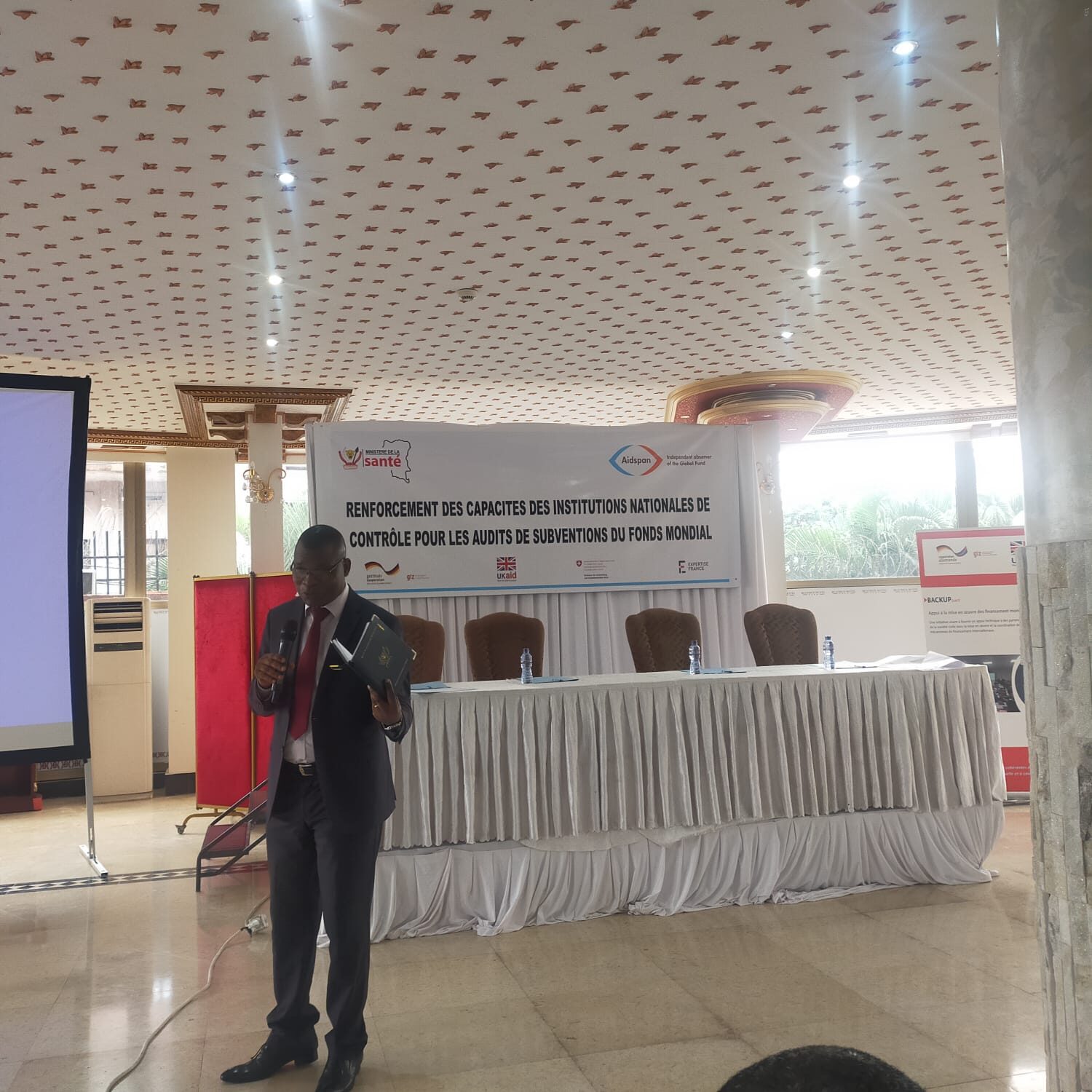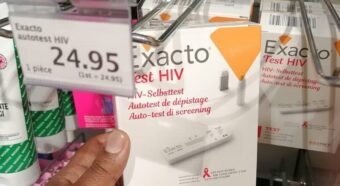The Health Inspectorate, a supervisory institution with real potential in the Democratic Republic of Congo
- April 12, 2023
- The Global Fund
- By Djesika Amendah
- Read in French

Summary:
The DRC’s Health Inspectorate (IGS) is the internal audit department of the Ministry of Health. It investigates and detects irregularities within the Ministry of Health. The IGS has a proven track record with some partners such as the World Bank and UNICEF but is not involved in Global Fund interventions.
The DRC is one of the five largest Global Fund portfolios with an allocation of $700,653,867 for the 2021-2023 cycle, based on the country’s population of over 100 million, low income and disease burden. DRC accounts for 12% of malaria cases and 13% of deaths worldwide, according to the World Health Organization’s 2021 report. In particular, 40% of consultations in the country are related to malaria.
DRC is classified as a high-impact country, meaning that the results achieved in DRC substantially contribute to the Global Fund’s results. DRC is also considered a challenging operating environment and is placed under additional safeguard policy. The country has experienced civil war over the past 30 years and an active rebellion remains in the east of the country. Road infrastructure is inadequate in this huge country of 2.3 million square kilometers with a population of 100 million. The government is the principal recipient of grants with CORDAID and SANRU as non-governmental actors.
DRC grants are sometimes subject to financial fraud and misappropriation as audit reports and investigations by the Office of the Inspector General and the Global Fund’s 2022 Report on Recovery indicate.
The Global Fund Secretariat responds with controls it deems appropriate. One such control is the fiscal agent installed by the Secretariat on grants to improve grant management. There are also frequent visits by the Secretariat’s country team, the installation of a large team of fiscal agents to obtain or maintain managerial orthodoxy, controls by the Fund’s local agent, and the strengthening of the internal audit team of the Ministry of Health’s management unit.
DRC’s oversight institutions are not involved in Global Fund grants
DRC has oversight institutions that were established or revitalized over the past 10 years. These institutions that act or may act in the health sector are the Court of Auditors, which is the supreme auditing body, the General Inspectorate of Finance (IGF), which is the internal auditing body of the Congolese State, and the General Inspectorate of Health.
It should be noted that none of these national institutions is officially involved in the oversight of Global Fund resources.
It is against this backdrop that Aidspan, which issues the independent Global Fund Observer, organized a capacity building workshop for DRC’s national audit institutions from March 27 to 31, 2023. This capacity building activity is related to financial and programmatic auditing and some aspects of procurement and supply of stocks.
The information provided in this article is drawn from workshop presentations, public information, and an interview with the Inspector General of Health, Mr. Djoke Komba.
The Health Inspectorate: The Ministry’s Internal Audit
The Health Inspectorate was created in March 2017 by an order of the then Minister of Health. The Health Inspectorate (IGS) of the Democratic Republic of Congo is the internal audit of the ministry. The objective of the IGS is to investigate and detect irregularities within the Ministry of Health. The inspectorate has qualified staff, financiers, doctors, pharmacists and others who work at the ministry in the Capital and in the provinces. The health inspectors are also judicial police officers, which means that they can report suspicions of fraud to the public prosecutor, who could then prosecute the perpetrators if he/she decides to do so.
To ensure a certain degree of autonomy to the IGS, it reports directly to the Minister of Health, who is the main authority in the ministry. In contrast, the other departments of the Ministry of Health report to the Secretary General of Health.
Some successes and challenges of the DRC Health Inspectorate
With financial support from the World Bank, the IGS tracked down fictitious agents within the Ministry of Health between 2018-9. These fictitious agents are people who receive payments from the national budget but do not actually work because they are dead, disabled, retired or for other reasons. The IGS found approximately 33,000 fictitious agents who were paid $3.5 million per month on the national budget. These fictitious agents were removed from the national payroll and replaced with new recruits.
In 2021, supported by UNICEF, the IGS inspected and monitored the operation as well as good distribution practices of pharmaceutical products in wholesale establishments. This inspection focused particularly on the 13 life-saving medicines for women and children under five. The report highlighted the proportion of products available, the compliance of import procedures, storage, and staff quality with regulatory standards. It also made recommendations.
The main challenge for the inspectorate, according to its director, is the insufficient operating budget. In fact, partners support specific inspection activities. Without this support, inspection is extremely limited. One would wonder if this is not intentional.
One-time support for Global Fund grants on request
According to the IGS Director, the inspectorate supports the Global Fund’s fiscal agent when requested on an ad hoc basis. Without supporting documentation, all of these expenses are considered ineligible and should be reimbursed by the DRC government. The fiscal agent contacted the IGS to seek supporting documentation from health institutions and other implementing actors in the provinces. The report on this activity indicates that the IGS was able to recover supporting documents acceptable to the fiscal agent, that represented 93% of the initial amount.
But the IGS could better support Global Fund grants in view of its mandate, experience and operations if given the opportunity to do so by other actors in the country as well as the Global Fund Secretariat. According to the IGS Director, such collaboration would allow for better quality of services to the population and better accountability.
Dr. Djesika Amendah


